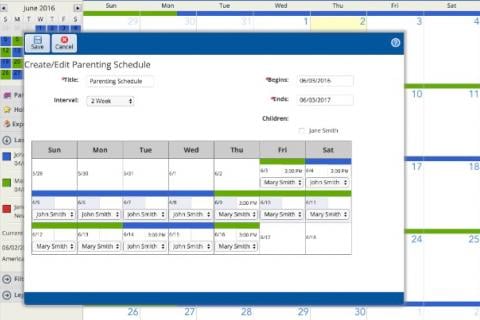When You Can’t Agree on Family Arrangements After Divorce

Agreements between co-parents during divorce proceedings can be hard to attain. With emotions at an all-time high and resentments from past arguments brought to the foreground, parents may have difficulties seeing past the storm to work to create a comprehensive parenting plan.
Conflict can, unfortunately, become a priority in these situations. While tough to admit, parents finding themselves unwilling to compromise when it comes to their shared parenting arrangements may be placing the needs of their children on the back burner.
When this happens, sometimes the courts must step in and take control over the creation of a parenting plan. However, this is far from ideal. Courts are often incredibly busy and must make a decision about a family in a relatively short amount of time.
Exhaust all options
It’s incredibly important that co-parents exhaust all available options when trying to come to an agreement about their parenting plan. Raising children from separate households is a tough situation to acclimate to, so it’s no wonder that parents have a hard time seeing the positive in deciding their parenting schedule, expense reimbursement percentages, and other aspects of shared parenting. It’ll often feel like no one is happy with the decisions being made.
Nevertheless, parents should strive to come to those decisions mutually, whether independently or with the assistance of lawyers or through a neutral, third-party mediator. This process may be the most difficult of a divorce, but the effort put into those decisions will help parents put their best foot forward in their new co-parenting relationship.
Rather than contending with an arrangement created by a relative stranger, co-parents who work together to create a plan that works for everybody begin their co-parenting relationship with a spirit of cooperation. That can go along way in helping the adjustment to shared parenting go a little more smoothly in those first few months.
Court involvement
When parents cannot come to an agreement, family courts may get involved and determine the parenting arrangements after a divorce. While parents coming to a mutual agreement is typically ideal, in cases where conflict is prevalent or when other circumstances make mediation inappropriate, court-involvement may be necessary in order to move forward.
The court's primary and sole directive is to determine a custody arrangement that is in the best interests of the child or children. However, the method by which the court achieves that goal varies from province to province. Ontario, for example, has the Office of the Children's Lawyer. This office, when requested by either parents or a judge, can appoint a Child's Lawyer to a disputed custody case to evaluate familial relationships and make suggestions for an arrangement.
Besides Ontario, Alberta, British Columbia, Quebec, and the Yukon also have provisions for the appointment of legal counsel for a child, but the other provinces and territories do not. Due to these variations, parents should consult a lawyer in their area about how best to proceed with court involvement in their custody and access case.
According to the Department of Justice, court processes in Canada follow an adversarial model, "meaning that each person is responsible for bringing forward the facts and law to convince the judge of the merits of their case." This model, however, can be at odds with the nature of co-parenting relationships.
Co-parenting is a lifetime appointment, during which parents will have to solve disagreements by working together. Beginning this relationship through court, where we tend to classify outcomes as winning versus losing, places co-parents in opposition to each other from the get-go. If a relationship is defined adversarially from its inception, it can be harder to reach a place where parents can work cooperatively to overcome the ever-evolving challenges of shared parenting.
Certain situations will necessitate the court's involvement to resolve custody and access disputes. But if preventable, parents should take all necessary steps to work together collaboratively to create a solution for their family after a divorce or separation. Including such methods as mediation and collaborative family law, parents have many different options that facilitate cooperative approaches to questions of custody and access. Explore the OurFamilyWizard Knowledge Centre for more information about resources and professionals in your area.
More on parenting arrangements
NOTE: Many state and federal laws use terms like ‘custody’ when referring to arrangements regarding parenting time and decision-making for a child. While this has been the case for many years, these are not the only terms currently used to refer to these topics.
Today, many family law practitioners and even laws within certain states use terms such as ‘parenting arrangements’ or ‘parenting responsibility,’ among others, when referring to matters surrounding legal and physical child custody. You will find these terms as well as custody used on the OurFamilyWizard website.

